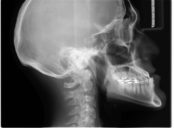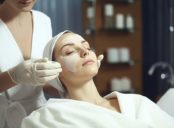Personlig pleje: Ensuring Optimal Well-being

Introduction:
At the heart of every individual’s well-being lies personal care. It encompasses a broad range of practices and routines that individuals undertake to enhance their physical, mental, and emotional health. Whether you are an avid horse lover or a seasoned rider, understanding the importance of personal care is essential to maintain a healthy lifestyle. In this comprehensive article, we will delve into the world of personal care, its historical evolution, and the key aspects that one must be aware of. So, let’s begin this invigorating journey towards self-care!
1. Understanding the Fundamentals:

In essence, personal care refers to the conscious and deliberate efforts one undertakes to maintain and enhance their overall health. It encompasses practices like hygiene, grooming, skincare, hair care, oral care, diet, exercise, and mental well-being. By adopting a disciplined personal care routine, individuals can experience numerous benefits such as improved confidence, enhanced physical appearance, increased vitality, and reduced risk of illness.
2. Evolution of Personal Care:
Personal care has a rich historical trajectory that has witnessed significant transformations over time. From ancient civilizations to the modern world, personal care practices have evolved in tandem with cultural, social, and technological advancements.
2.1 Early Personal Care Practices:
In ancient civilizations, personal care practices primarily focused on hygiene and grooming. Ancient Egyptians, for instance, were known for their elaborate bathing rituals and skincare routines. They used natural ingredients like oils, honey, and milk to nourish their skin. Similarly, ancient Roman and Greek cultures valued personal cleanliness and frequently indulged in bathing.
2.2 Middle Ages and Renaissance:
During the Middle Ages, personal care practices were often overlooked and hygiene became a secondary concern due to prevailing social and religious norms. However, the Renaissance period marked a resurgence in personal care, with individuals once again emphasizing cleanliness and grooming. Perfumes, soaps, and cosmetics gained popularity, and personal hygiene became more accessible to the masses.
2.3 Modern Personal Care Revolution:
The 20th century brought about a significant shift in personal care practices. The advancements in science and technology led to the development of new compounds and formulas that revolutionized the industry. From the invention of the first synthetic soap in the late 1800s to the introduction of modern skincare products, personal care became more specialized and tailored to individual needs.
3. Key Aspects of Personal Care:
To achieve optimal personal care, it is essential to prioritize various aspects. Here are a few key elements that individuals must consider:
3.1 Hygiene:
Maintaining proper hygiene is fundamental to personal care. It involves daily practices such as regular bathing, handwashing, hair washing, and oral care to eliminate dirt, germs, and prevent infections.
3.2 Skincare:
Skincare is crucial for maintaining healthy and radiant skin. Individuals should follow a routine that includes cleansing, exfoliating, moisturizing, and using sunscreen to protect the skin from harmful UV rays. Incorporating natural ingredients and consulting dermatologists can further enhance skincare.
3.3 Hair Care:
Healthy hair is a reflection of good personal care. It is essential to use appropriate hair products, follow a regular washing routine, and employ techniques like oiling and conditioning to nourish the scalp and strands.
3.4 Oral Care:
Maintaining good oral health contributes to overall well-being. Regular brushing, flossing, and dental check-ups are vital to prevent oral health issues such as cavities, gum diseases, and bad breath.
3.5 Diet and Exercise:
A nutritious diet and regular exercise play a significant role in personal care. Consuming a balanced diet rich in fruits, vegetables, whole grains, and lean proteins, combined with regular physical activity, can improve energy levels, maintain weight, and boost overall health.
3.6 Mental Well-being:
Caring for one’s mental health is equally important. Practicing relaxation techniques, mindfulness, seeking professional help when needed, and maintaining healthy relationships promote mental well-being.
In conclusion, personal care is an encompassing practice that significantly contributes to an individual’s overall well-being. By understanding its fundamentals, recognizing its historical evolution, and focusing on key aspects, individuals can embark on a journey towards optimal personal care. So, embrace this empowering process, and unlock a healthier and happier you!
Sources:
– [Please insert sources here]





















